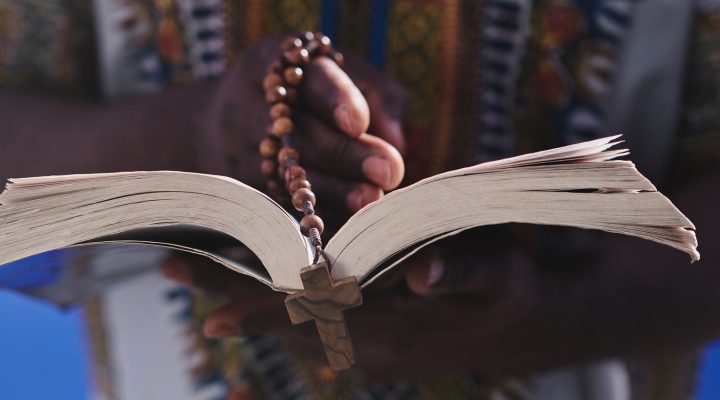Zikode Phiri calls himself a “freelance prophet.” He has just completed a tour of France and Britain for “private prayer” clients — laying on hands, casting out demons, and interpreting dreams for those who have paid for his visa and flights from 7,309 miles away in Zambia.
“Where I hail from in Zambia, it’s easier nowadays to earn good money as a prophet than pastor,” he explained.
Phiri says affluent émigrés from his native Zambia bought him a plane ticket and hotel accommodations and lavished him with an allowance to spend four weeks in France and Britain laying on hands and offering prophetic dream interpretation services for select African families in France and the UK.
The anticipated $3,000 he’ll net off this trip — plus gifts like pricey shoes — dwarfs his earnings in Zambia where he previously worked as an ordained Methodist pastor.
“There is now a huge Zambia diaspora presence in the UK, and they need the prophetic services from someone African, similar to them, and that’s me.”
“It’s possible because there is now a huge Zambia diaspora presence in the UK, and they need the prophetic services from someone African, similar to them, and that’s me,” Phiri explained.
Prophet-pastors like Phiri say they didn’t set out to become freelancers offering religious services outside frameworks of conventional Methodist, Baptist or Lutheran churches they grew up in and trained with.
“I was ordained in the Methodist Church in Zambia, but like many American-remnant faith groups here, practices like prophetic gifts are restrained by what our bishops call internal church doctrine,” he said.
One can be suspended for prophetic work like interpreting dreams, casting out demons, and giving out holy water, he acknowledged. “So, I quit — I am now a freelance prophet being hired by affluent émigrés abroad in Europe to fly twice a year and cover their prophetic needs.”
The constraint of traditional denominational oversight groups also was too much for Jimayi Ntokozo, a former Baptist pastor from Zimbabwe who now spends three months a year in the south of England offering prophetic services to émigré families from Zimbabwe who are residing in the UK.
The nonprofit Feminist News previously reported on how American-remnant faith churches in southern Africa like the Baptists use church doctrine, their internally crafted rules, to restrict the appointing of female priests or the practice of prophetic gifts.
“Although they might be Baptists, Methodist or Presbyterian in their everyday faith — secretly they hunger for evangelical-style prophetic services.”
“The émigré families pay for my flights and allowances to fly to the UK and spend three months with them,” Ntokozo said. “The interesting thing is although they might be Baptists, Methodist or Presbyterian in their everyday faith — secretly they hunger for evangelical-style prophetic services. Hence, they hired me as a freelance prophet in their private capacity as families. It is better money for me.”
In southern Africa, traditional American-based denominations enforce bans on prophetic expressions as a way to differentiate from other evangelical groups.
“The real reason is to separate these denominations from evangelicals in these countries. Evangelicals are popular for mass, open-air prophetic services and gifts. The Methodists, Baptists, Lutheran or Presbyterians can’t compete in style and numbers,” said Pastor Rishon Muganga of Zion Christian Church, one of southern Africa’s biggest independent churches where prophetic expressions are a huge identity.
Across countries including South Africa, Mozambique, Zambia and Malawi, the job of “prophet pastors” commands huge, feverish followers and can earn one serious wealth if they are thought to possess prowess in predicting events, interpreting dreams or healing ailments.
With those restrictions and with the economy being what it is, ambitious pastors like Phiri believe their only option is to quit the denominations and earn a living traveling the world.
“I wanted to be a full-time pastor in the Methodist church I trained with, but the salaries are pitiful,” Phiri said. “The pull of flying around the world as a freelance prophet is hard to resist. Plus, I enjoy being a prophet.”
Jimayi Ntokozo agrees and says old-school denominations across southern Africa must relax their ban on prophetic expressions or they will continue to lose ministry talent when pastors opt to become freelance prophets.
Related articles:
In South Africa, an unholy trinity — televangelists, TV stations and cellular companies


